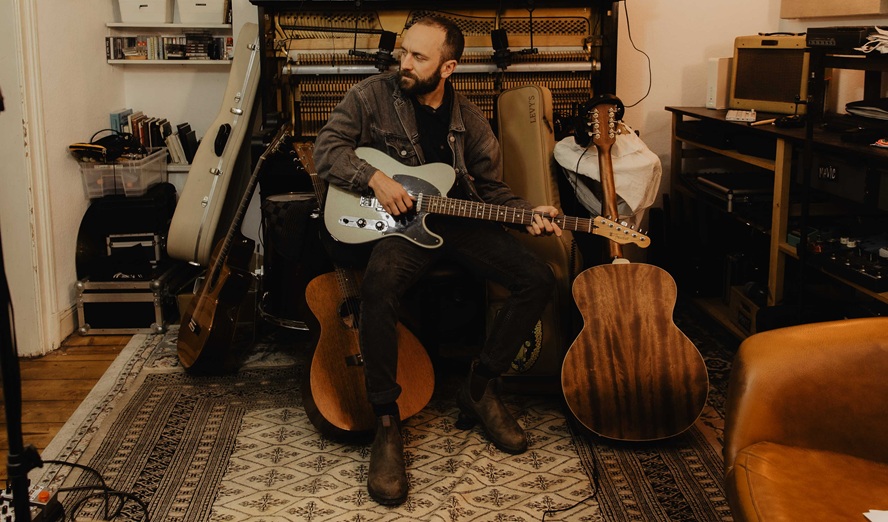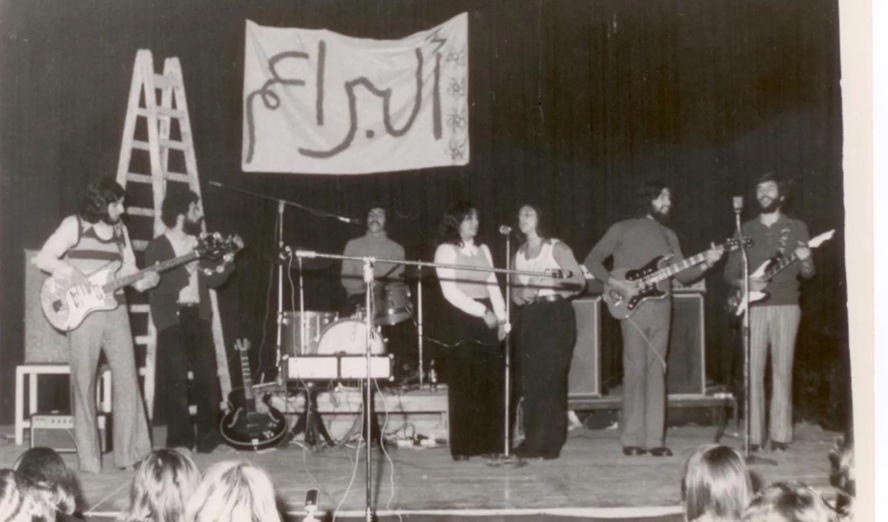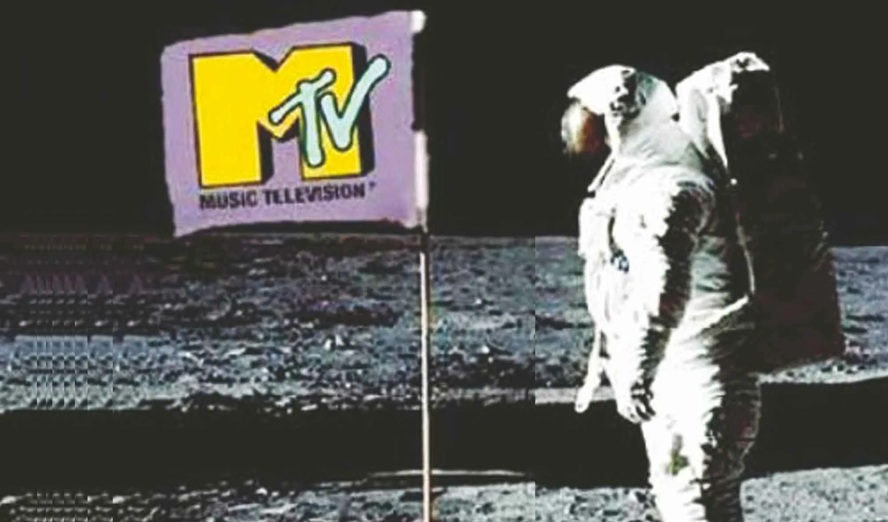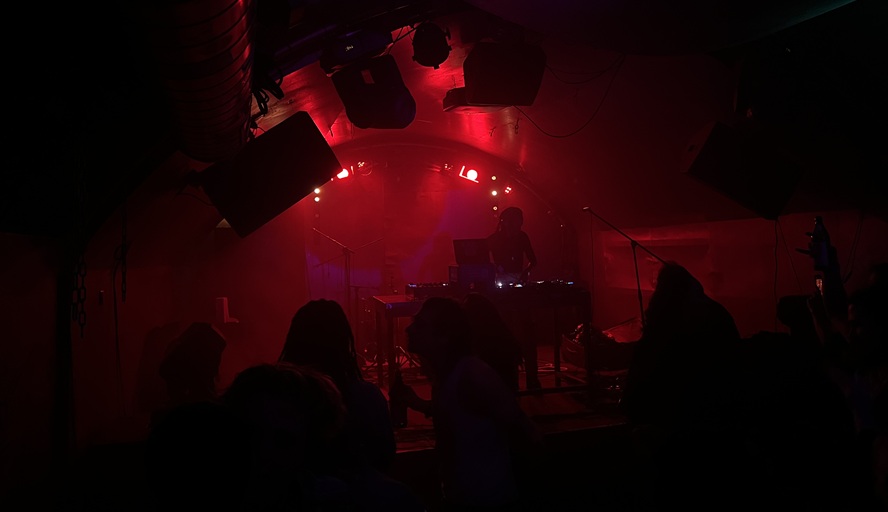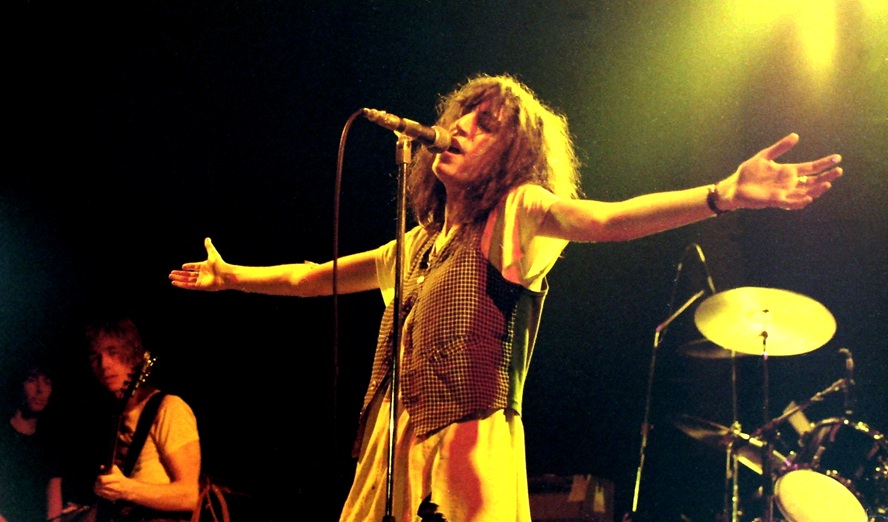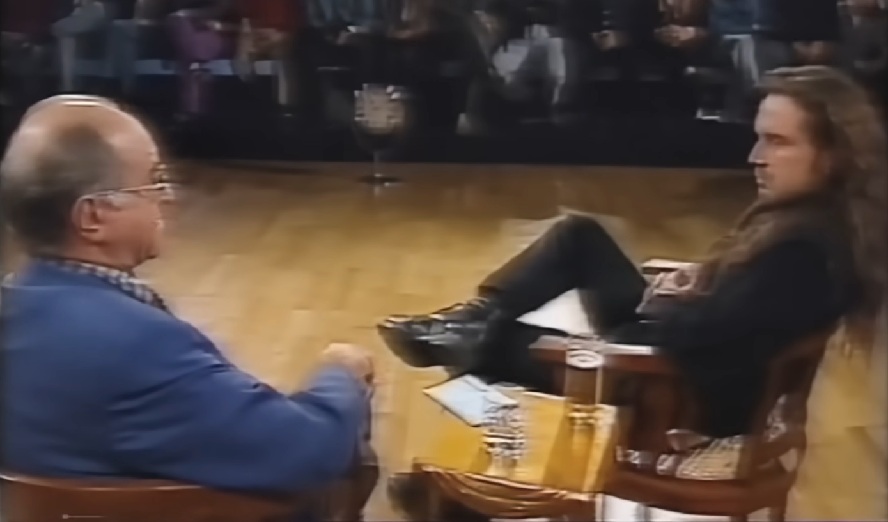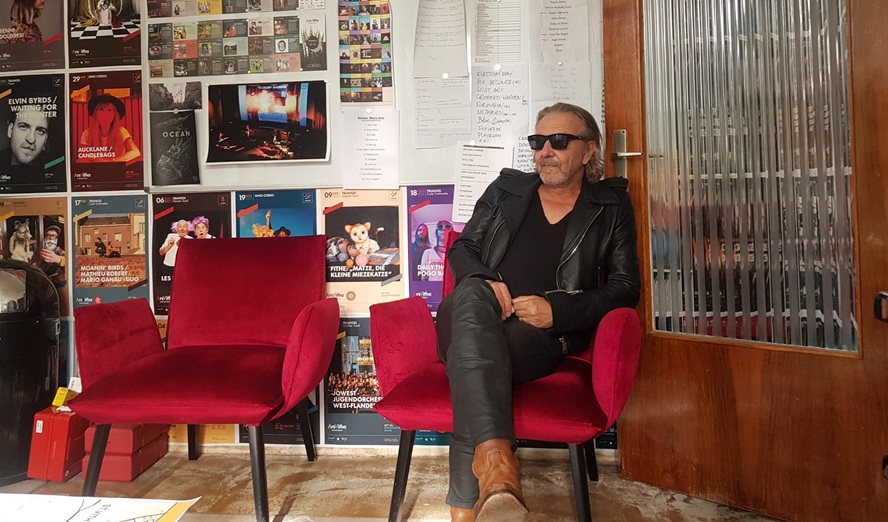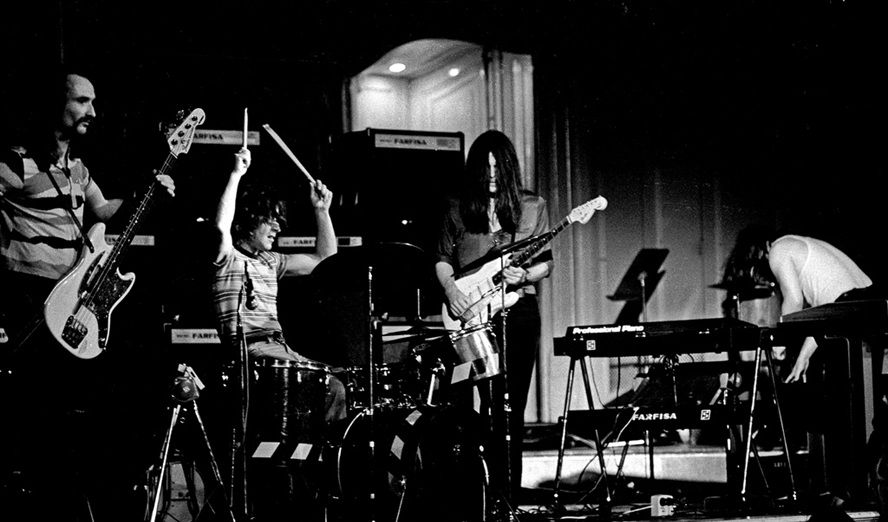Austro-American singer-songwriter Ian Fisher left his home state of Missouri, US, to spend many years roaming the streets of Vienna. His music blends his rural Midwestern upbringing with a sensitivity shaped by his years on Vienna’s indie scene. Simple, yet emotionally complex, he performed shows in Europe, North America, and Africa. He is still traveling between Vienna and his family farm. Ian Fisher will premier his new album »Go Gentle«, dedicated to his late mother, on April 9, 2025, at Stadtsaal Vienna together with his band members Jonas David (keys & percussion), Johanna Seitinger (backing vocals & bass), and Richard Case (pedal steel guitar). skug asked about his grieving process, his personal nineties, and how moving and moving on is connected somehow…
skug: I am sorry to hear of the death of your mother. If it is okay, we will deal with the topic of loss and mourning work. Here are some lines from the opening tune »The Face of Losing«: »Getting on the plane and listening to your favorite song / I’m sinking but taking off / Ashes in a vile, a picture where we smile / Is all that I can carry«. What was your mother’s favorite song? And could you explain the last part of the lyrics, starting with »ashes in a vile«?
Ian Fisher: There’s no way around answering personal questions when you write an album like this. I guess that’s part of the process. I didn’t want to write these songs, nor did I want to release them in the beginning, but I felt like I had to. Like I would have been holding back if I didn’t. Songwriting is my way of processing life. If I didn’t use that artform to process the most challenging thing I’ve experienced, then it would have basically been self-destructive. Once the songs were written, it felt like if I didn’t share them with people, then it would have been out of fear or shame, and I didn’t want that to rule over me. That being said, the process of writing these songs, releasing them, performing them live, and talking to people like you about them has forced me to deal with my grief in a way that I would have avoided and repressed if I wouldn’t have dealt with this through music. To answer your question, my mom’s favorite artist was Carole King. I was listening to her song, »Beautiful«, as my plane took off from St. Louis bound for Europe to take me away from her for the last time. King sings, »You have to get up every morning and show the world all the love in your heart«. It felt like my mom was talking to me through that song. I couldn’t see the ocean beneath me through the tears. Now I wear her ashes in a necklace around my neck.
Mourning is a very emotional, even physical process. In »Growing Pains« you sing: »Growing pains / Smell the Atlantic from U-Haul one thousand miles in the back / Bridge of Popeye we crossed in the night / The river beneath us was black«. Could you explain the scenery that you describe here?
I went to a lot of therapy during the pandemic and our sessions kept revolving around an accident my dad had when I was four and my mom’s diagnosis with cancer when I was nine. I felt like those traumatic chapters in my childhood shaped me into who I am today in ways that I didn’t fully recognize before. Everything from my reasons behind leaving the US for Europe to why I’m a songwriter can somehow be traced back to that. To specifically get to your question though, the first verse of that song refers to some of my first memories of moving from Florida, where I was born, back to my parents’ home in the state of Missouri when I was a kid. I was in a car seat for that twenty-hour drive that ends with a trip over the Mississippi River at Chester, Illinois, which is the hometown of the creator of the cartoon character Popeye.
Memory work is a part of mourning work. In the song »Take You With Me« you deal with the people who will not be remembered. Could you talk about that song? What would or should people remember about you?
I’d be happy to talk about the song, but I have nothing to say about what people will or should remember me by. We have no control over that. Time will tell. Concerning the song »Take You With Me«, it’s the only one on the record that’s not directly about my mom. It was inspired by my first experience of the death of someone close to me. My friend Wade died in a car crash in high school. I spent a lot of time thinking about that as a seventeen-year-old. I started to feel and believe that death isn’t final. Not in a religious sense, but more in a causality sense. I realized that even though he was physically gone, his memory was still there, and the ripples left behind by his actions and presence still vibrated through me and our community. I felt and still feel that as long as his memory lives in me, then he is still alive in a way. I feel that way about my mom and everyone I’ve loved and who has loved me as well.
When someone is overwhelmed by feelings, talking and sharing the feeling often helps. One can find that in a lot of song lyrics in general. »Tigress« is a beautiful song, and I like the lyrics when you describe a clear vision: »You rage through the forest like a storm / Pushing aside the trees / And I can see for miles now / I can finally see – you«. Why did you choose a tigress as a symbol of a strong character?
My mom fought cancer for twenty-six years. One of the last times that I talked to her before she started to fade, I asked her why she’d fought for so long. She said that she did it for me and our family. That energy reminded me of a tigress who has the power – the claws and teeth – to fight, to defend, yet also has the instinct to be tender and loving.
The grieving process is very painful, and this emotionality makes one feel very alive, even though, or perhaps because, the vitality of a loved one is no longer felt. I think these lines from »Somebody Loved« highlight this in a special way: »Tomorrow with borrow from yesterday’s dreams / But tonight’s all we got in between / Ain’t it good to be somebody loved«. Would you agree?
I’ve found that this has been an opportunity to remember how much she loved me. The grief and the pain are almost like the echo of love. As if the more grief I’ve felt, the more it shows I loved her. I’m definitely not saying that it’s good to romanticize suffering or intentionally try to intensify it, but that you don’t have to hide from grief. It’s scar-tissue. Those scars can be little tattoos reminding us of the love we’ve received and given.
Finality, irreversibility – human dignity shows up when we are enduring something senseless like the loss of a loved one. I recite this part of »In Her Hand«: »When I landed feeling stranded / Finding everything I planted overgrown / That I’d blame it on somebody / But there’s no one left when you’re alone / Just that helpless angry freedom / Of time’s overthrow of plans«. What is »helpless angry freedom«?
I felt like the gravity of that situation put everything else in perspective. Like her death made all of my daily worries and concerns seem so small that they could all be easily blown away if I chose to let them be. There’s a liberation in that. When fate forces your hand, you have no choice but to follow the current that takes you. It makes you feel helpless. It makes you angry. And, if you let it, it can free you.
We need the distance of reflection and distraction to bear the hurt feelings when someone we were close to is not around anymore. And a place to hide can also be useful, as you describe in »Underneath Your Wing«.
This might be true if the distance and distraction don’t last too long. Such things need to be faced eventually. I can see how »hide« can be perceived that way, but, for me, when I sing »Hide me underneath your wing« in that song, I’m not imagining running away from someone or something. I imagine being carried and protected by someone. As if someone were taking me underneath their wing and flying away with me riding along. Doing what I couldn’t do on my own. Teaching me how to fly.
In »Mother Please Forgive Me« you mention the nineties. What did your nineties in America look like?
In that song, I mention the nineties because that’s when my mom was diagnosed with cancer. On my ninth birthday to be exact. I barely remember her without it. When I think of that time now it’s mostly filtered through old VHS tapes and photos. I picture her fighting to live as normal of a life as possible and not to allow her illness to overshadow everything else. I picture myself as a child not fully aware of what was going on, but with a vague idea of the severity of the situation. Always feeling like at any moment she could be taken away, but not addressing it. I unconsciously responded to that unending feeling by doing the only thing that I felt I had control over, which was to run away. I didn’t do it intentionally, but by distancing myself from that pain by immigrating to Europe I was able to slightly step out from underneath its shadow for a time. As I unpack that now, I can’t help but hate myself for the decision and be more consciously aware of the lifetime of guilt that has perspired since and, to at least some degree, will always remain.
In »Independence Day«, you describe the independence of a human from being?
Most people I’ve talked to about the death of their parents or loved ones who suffered for a long time before the end often ruminate on the dichotomy between wanting to keep them alive and wanting their suffering to end. I didn’t want my mom to die, but a long hard decline in health and then laying there comatose for weeks in extreme physical pain at the end wasn’t a way for her to »live« either. When she finally passed, I felt like she was liberated from her frail body. When I stood over her grave, I didn’t feel like she was in the urn in the ground below, rather she was just as much in the songs of the birds and the breeze through the trees above. She was also liberated in my heart and mind. I no longer think of her bedridden and tired back on our farm in my hometown, but I feel her with me wherever I go.
»Box of Dust« is the last lament on your album. Even in ancient times, humans turned worries into laments. The German philosopher Wilhelm Schmid also found another transformation, he paraphrased »Weh in Weg übersetzen«, meaning something like »translating pain into a path«. Is being on tour as a way of moving on a useful thing to do?
I like that. That reminds me of a misunderstood lyric on the album. A friend of mine in Oregon runs a grief counseling center and when he first heard the song »Growing Pains«, he thought I sang »grow in pain«. Similar sentiments. I don’t feel like I’m some enlightened being now or that I’ve completely overcome this loss and everything that comes with it. That will be a livelong process. However, I do feel that if I wouldn’t have written these songs, recorded them, released them and played them live, then my path through and beyond this fire would be much different. I feel like this process has forced me to stand in the pain and not just run quickly through it or away from it. I feel like I have been forced to recognize it, to hold it, to not be afraid of it, to own it. If it helps others do that too, then maybe to some extent this pain will be endowed with a meaning. In other words, »translated into a path« not just for myself as the artist, but hopefully for the audience as well.
This interview was first published in a shorter version in German at mica – music austria.
